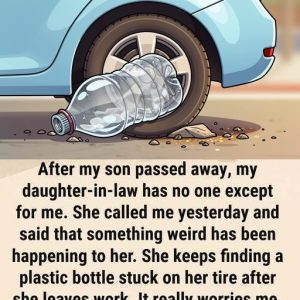After the divorce, my 14-year-old son asked to live with his dad.
I didn’t fight it. I swallowed the ache in my chest and told myself it was what a good parent did—put the child first, even when it hurt. I hugged him tighter than usual the day he packed his things and said, “Call me anytime. I’m always here.”
And I meant it.
At first, everything seemed fine. He texted sometimes. Short messages. One-word replies. I told myself he was adjusting.
Then the calls started coming in.
Teachers. One after another.
“He’s falling asleep in class.”
“His grades are slipping.”
“He seems withdrawn.”
My stomach twisted. That wasn’t my son.
The next day, I drove straight to his school and waited until the final bell rang. When he climbed into my car, my heart sank. His shoulders were slumped, dark circles sat under his eyes, and he didn’t even look up.
I asked gently, “Talk to me. What’s going on?”
He was quiet for a long moment. Then his voice broke.
“Dad… he says I’m the man of the house now.”
I gripped the steering wheel as he explained everything. The late nights watching his younger siblings. Cooking dinners. Doing laundry. Being yelled at for bad grades while having no time to study. Being told to “toughen up” whenever he said he was tired.
“I didn’t want to disappoint him,” he whispered. “But I’m so tired, Mom.”
That was it.
I didn’t cry. I didn’t scream. I drove him straight home, made him a sandwich, and let him sleep for three hours while I sat at the kitchen table, shaking with quiet fury.
The next day, I called my lawyer.
Within a week, custody was changed—emergency order. Teachers submitted reports. A counselor spoke on my son’s behalf. The judge didn’t hesitate.
When his dad protested, saying, “He needs to learn responsibility,” the judge replied calmly, “He’s a child, not free labor.”
Now my son lives with me again.
He sleeps. He laughs. His grades are climbing. The weight is gone from his shoulders.
Last night, he hugged me out of nowhere and said, “I should’ve never left. But thank you for coming to get me.”
I kissed the top of his head and smiled through tears.
Sometimes loving your child means letting them go.
But protecting them means knowing when to bring them home.





